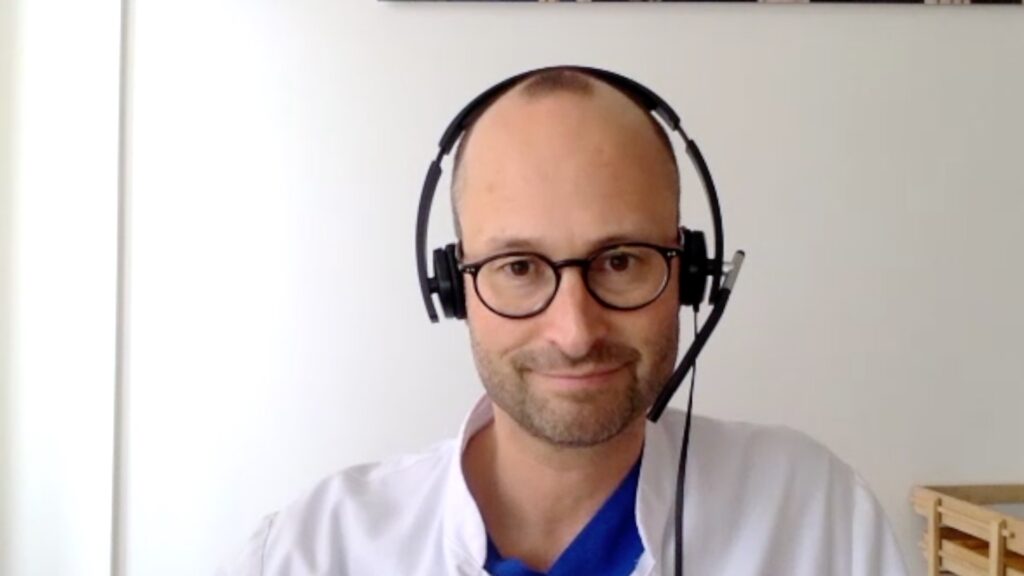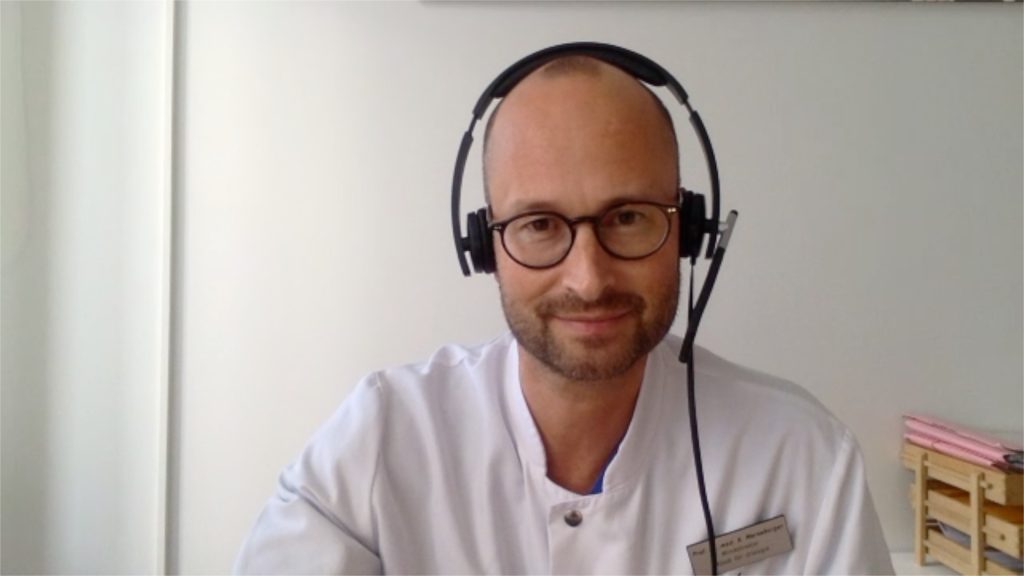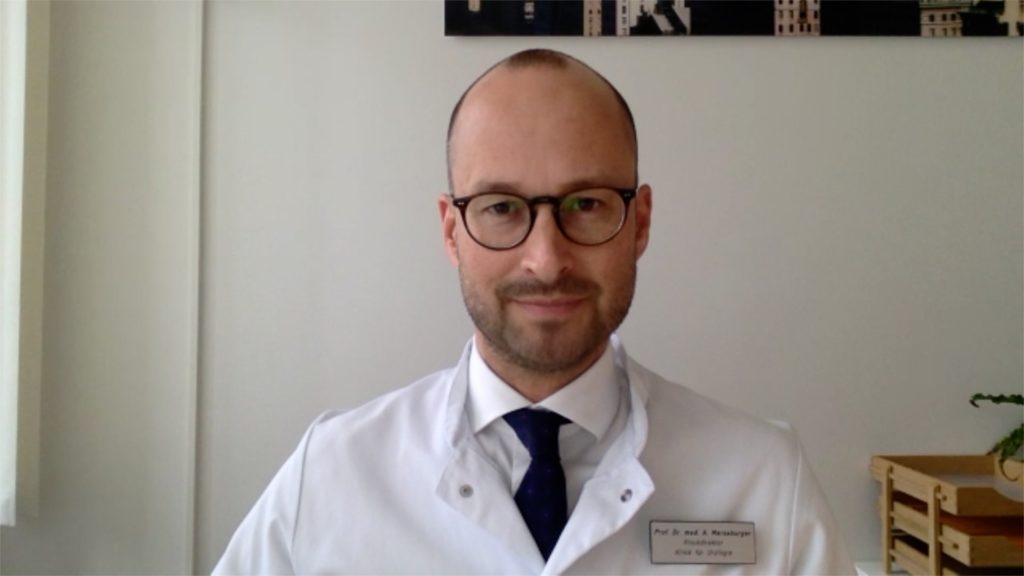Our Editor-in-Chief Axel Merseburger (Lübeck University, Lübeck, Germany) discusses key data from this year’s European Association of Urology annual meeting (EAU23) in the field of prostate cancer. He discusses results from the LuTectomy trial, the 15-year update of the ProtecT trial and the PROBASE trial.
Question: Please summarize the most important presentations and data from EAU23
Disclosures: Axel Merseburger has nothing to disclose in relation to this video interview.
Support: Interview and filming supported by Touch Medical Media. Interview conducted by Sophie Nickelson.
Filmed as a highlight of EAU23
Access more content on genitourinary cancers here
Transcript
Hi my name is Axel Merseburger. I’m Professor of Urology and Chairman of the Department of Urology here in northern Germany at Lübeck University.
Q. Please summarize the most important presentations and data from EAU23
EAU was one of my most prominent meetings throughout the year and there were a lot of highlights, not only from the presentation but also from the personal communication. It also tends to be at the beginning of the year so you start with a fresh data review and also an overview on the current recent developments in urology. My focus is in oncology, so that’s where I have a look and there was an exciting presentation from Renu Eapen from Australia, the LuTectomy trial, which looked at [177Lu]Lu-PSMA-617 as a therapy in localized disease and it was a feasibility trial with 20 men undergoing [177Lu]Lu-PSMA-617 therapy which is approved in metastatic CRPC, but was experimental in the setting. This trial looked at the effect and the dosage in localized prostate cancer and how and if a radical prostatectomy is still feasible. All those patients were operated at Peter Mack Institute by Declan Murphy and the summary was that it was feasible, it was not more difficult to operate and they calculated the update of the lymph nodes and the prostate of the Lutetium therapy and also showed that it’s a safe option. This was followed by a great discussion showing also some limitation and that is not a game changer yet, but investigation of ideal hypothesis generating, so very nice data on potential future treatment in localized prostate cancer. So far personally, I think this is not a game changer it’s not curing the cancer, they still underwent a surgery, so it’s a neoadjuvant option in a trial setting and future trials will further investigate the role of this.
More interesting was the ProtecT trial, the 15-year follow-up of the trial. Looking at the oncology data in one part, and the second part quality of life. Oncology-wise, they looked at active monitoring, radical prostatectomy and radiotherapy and oncologically the curves are really on top of each other. No statistical significant difference of prostate cancer survival and all cost survival. So, in summary, the low risk situation, active surveillance monitoring is definitely supported also by the guidelines. The survival from this clinical localized prostate cancer remains very high of a median of 15 years, 69-67%, irrespective of the treatment allocation, are alive.
So the men do not die of prostate cancer, and as we know from the most recent developments in systemic therapy, we can really stop progression even when we have metastatic disease. 15 years update from PROTECT is also on quality of life like urinary function, sexual bowel function and health-related quality-of-life. Definitely in the prostatectomy arm the incontinence was higher. However, in the radiation therapy, the bowel function were more severe as the side effect associated to the long-term and short-term effects of the radiation therapy.
So I think those in prostate cancer where definitely my highlights, aside from a press release that digital rectal examination is not useful to detect early prostate cancer. This was shown by the PROBASE trial by Professor Peter Albers here in Germany. Here the MRI is definitely the PSA diagnostic tool, state-of-the-art to detect prostate cancer in this early stage of the disease.
Subtitles and transcript are autogenerated.












